 Shutterstock
Shutterstock
Dogs are inherently social animals with a deep-rooted need for companionship; a trait passed down from their ancestry as pack animals. Whether bonding with their human family or engaging with fellow dogs, being part of a pack fulfills their natural need for connection, structure, and belonging. Packs offer safety, emotional support, and an outlet for instinctual behaviors, all contributing to a dog’s happiness and well-being. From playful interactions to shared quiet moments, dogs thrive when they are part of a pack.
They Thrive on Companionship
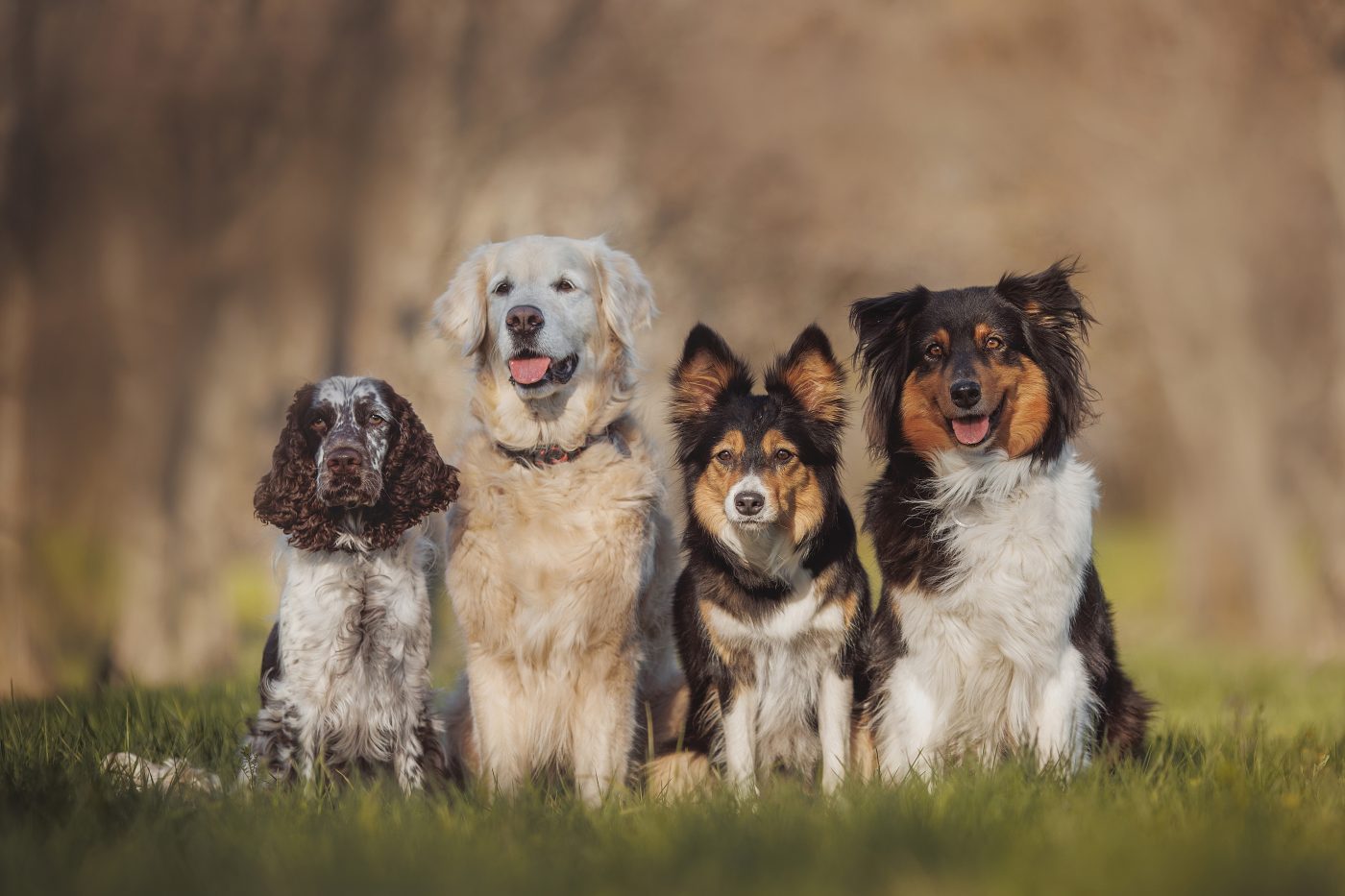 Shutterstock
Shutterstock
Dogs are naturally social animals; companionship is essential to their emotional well-being. Whether it’s their human family or fellow canines, being around others helps dogs feel secure and content. They enjoy shared activities like walking, playing, or even just lounging together. Without companionship, dogs can become lonely or anxious, making the presence of a pack an essential part of their happiness. A connected dog is a happy dog, and a pack provides that connection.
Packs Provide a Sense of Belonging
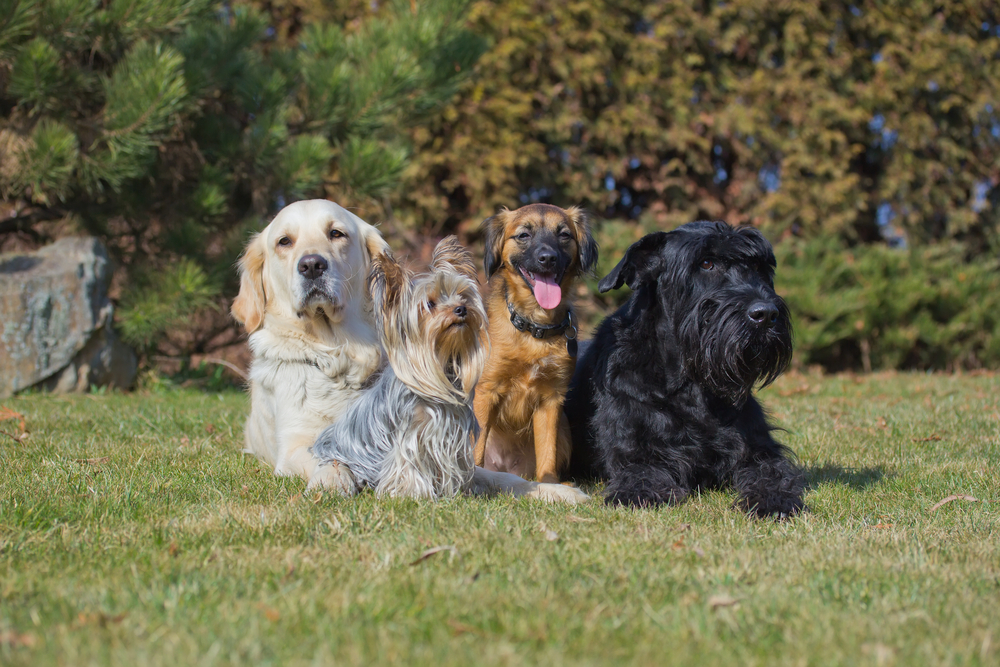 Shutterstock
Shutterstock
Being part of a pack gives dogs a strong sense of belonging, which is vital for their emotional health. In a pack, dogs know their role and can interact in ways that feel natural to them. This structure reassures them that they are an important part of a group, whether it’s their human family or a group of other dogs. The sense of unity and purpose that comes with a pack helps dogs feel valued and secure, boosting their overall happiness.
Communication Comes Naturally
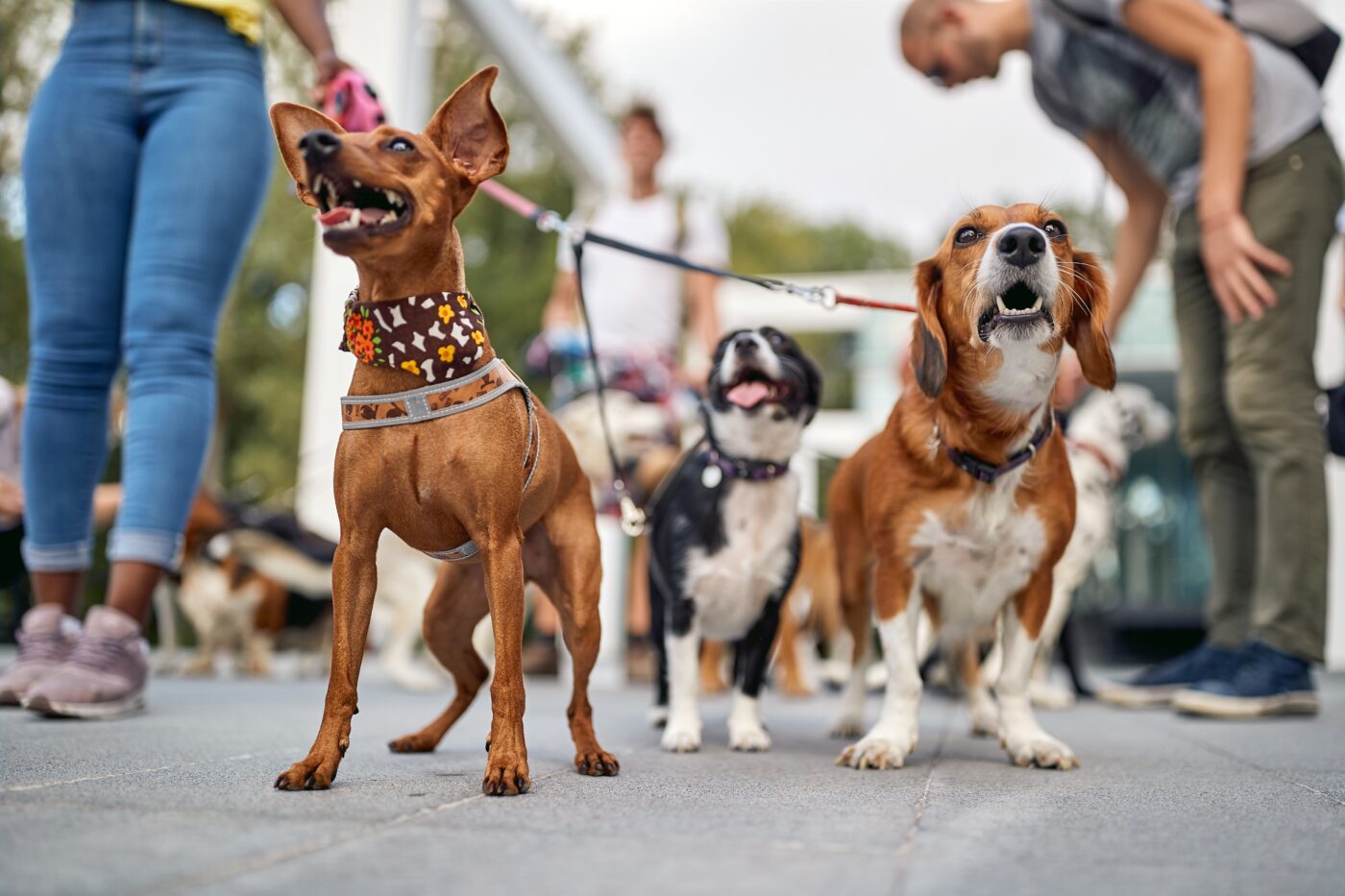 Shutterstock
Shutterstock
Dogs communicate best when they’re part of a pack. Dogs naturally connect with others through body language, vocalizations, and even subtle expressions. Being in a pack allows them to practice and refine these skills, whether it’s through playful interactions or setting boundaries. Packs create an environment where constant communication is understood, allowing dogs to express themselves freely. This helps reduce stress and promotes a happy, balanced demeanor.
Playtime is More Fun in a Pack
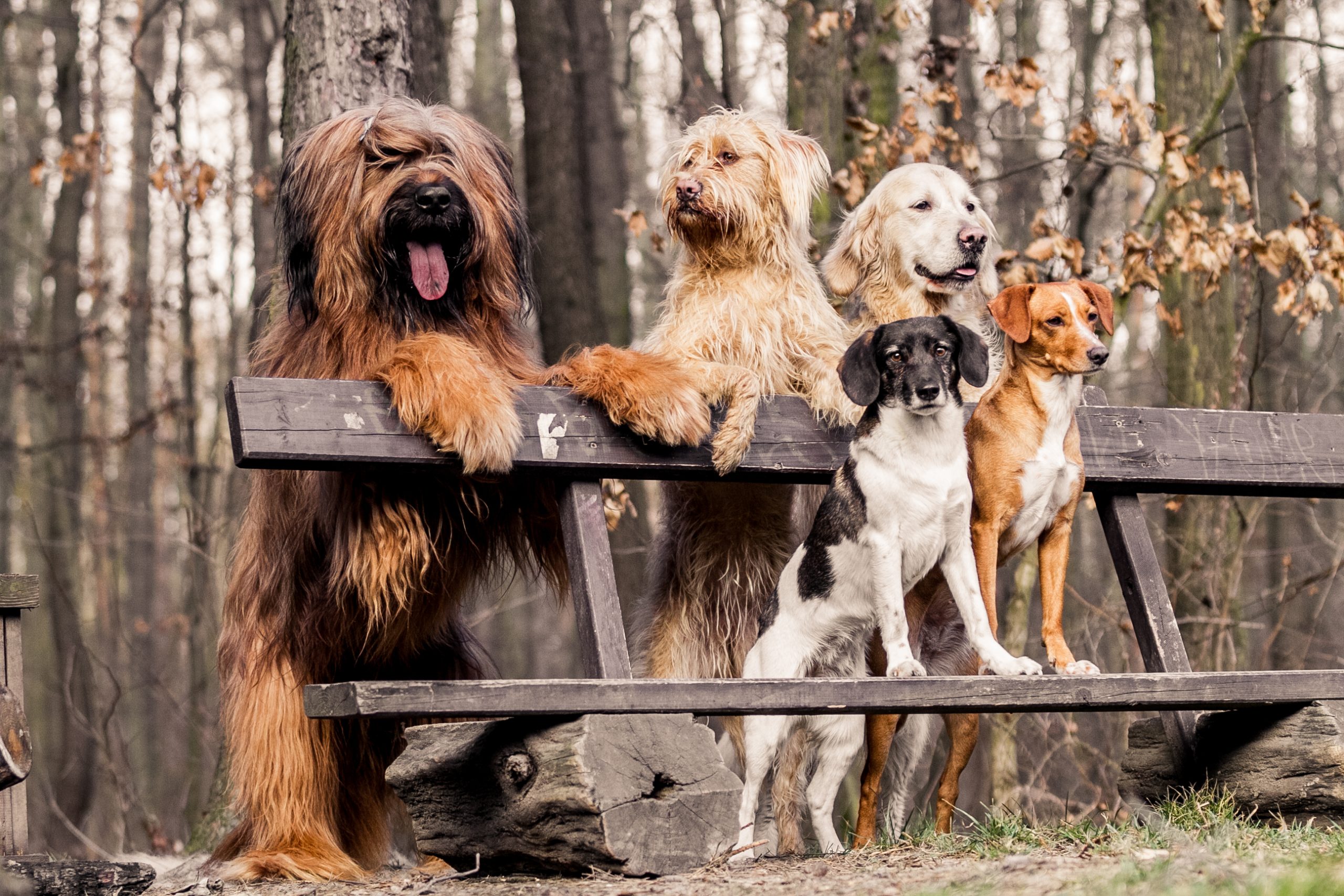 Shutterstock
Shutterstock
Play is essential to a dog’s life, and it’s even better when shared with others. Dogs have more opportunities in a pack to engage in natural, playful behaviors like chasing, wrestling, and tugging. Playtime strengthens bonds within the pack and provides much-needed physical and mental stimulation. Whether it’s a game of tag with fellow canines or fetch with their human, being part of a group makes playtime more enjoyable and enriching for dogs.
Packs Offer Protection
 Shutterstock
Shutterstock
In the wild, packs provide safety in numbers, and domestic dogs still benefit from this instinct. Being part of a pack makes dogs feel secure, knowing that they have others to rely on in times of uncertainty. This protective dynamic also extends to their human families, where dogs often act as guardians. A safe dog is happy, and a pack provides the sense of security they instinctively crave.
Shared Experiences Strengthen Bonds
 Shutterstock
Shutterstock
Dogs thrive on shared experiences, which are abundant in a pack setting. Whether it’s exploring a new trail, enjoying a meal together, or simply spending time in each other’s company, these moments create strong bonds. Shared activities deepen relationships and build trust within the pack, giving dogs a sense of purpose and connection. The joy they experience during these interactions proves that being part of a pack enhances their happiness.
Packs Provide Mental Stimulation
 Shutterstock
Shutterstock
Dogs are intelligent creatures, and being part of a pack provides constant opportunities for mental stimulation. From observing the group dynamics to engaging in cooperative activities, dogs constantly learn and adapt. This stimulation keeps their minds sharp and reduces boredom, which can lead to destructive behaviors. A mentally engaged dog is a happy dog, and a pack provides the perfect environment for continuous learning and interaction.
They Learn from Each Other
 Shutterstock
Shutterstock
In a pack, dogs naturally learn from one another. Younger or less experienced dogs often pick up cues from older, more confident pack members. This learning process helps dogs develop social skills, improve behavior, and build confidence. Whether it’s mimicking play behaviors or understanding boundaries, being part of a pack allows dogs to grow and thrive. The sense of accomplishment and growth they experience contributes to their overall happiness.
They Feel Less Lonely
 Shutterstock
Shutterstock
Loneliness can affect a dog’s emotional health, but being part of a pack alleviates this issue. Dogs in a pack always have someone to interact with, whether it’s a human or another dog. This constant companionship helps reduce feelings of isolation and provides comfort during stressful times. A dog surrounded by their pack feels loved and supported, significantly boosting their happiness.
They Follow Natural Instincts
 Shutterstock
Shutterstock
Being part of a pack aligns with a dog’s natural instincts, making them feel more fulfilled. From playing to communicating to establishing roles within the group, pack dynamics tap into behaviors that come naturally to dogs. Following these instincts helps dogs feel balanced and content, reducing stress and anxiety. Living in harmony with their instincts allows dogs to enjoy a sense of purpose and well-being.
They Gain a Sense of Purpose
 Shutterstock
Shutterstock
Every member has a role in a pack, and fulfilling that role gives dogs a sense of purpose. Whether acting as a protector, playmate, or companion, dogs thrive when they feel like they’re contributing to the group. This sense of purpose enhances their confidence and reinforces their bond with the pack. A dog that knows their place within a group is happy and satisfied.
They Enjoy Social Hierarchies
 Shutterstock
Shutterstock
Dogs are pack animals with an innate understanding of social hierarchies. Being part of a pack allows them to establish and respect these dynamics, which helps reduce conflicts and create harmony. Packs provide structure and predictability, both of which are important for a dog’s sense of security. A well-functioning pack creates an environment where dogs can relax and enjoy their interactions, contributing to their overall happiness.
They Build Confidence Through Socialization
 Shutterstock
Shutterstock
Being part of a pack helps dogs build confidence through regular social interactions. Whether it’s navigating group dynamics with other dogs or bonding with their human family, these interactions teach dogs how to adapt and respond to various situations. A confident dog is less likely to feel anxious or overwhelmed, making them more balanced and content. Socializing within a pack gives them the courage to explore new environments and face challenges, further enhancing their happiness and emotional well-being.
Packs Bring Endless Tail Wags
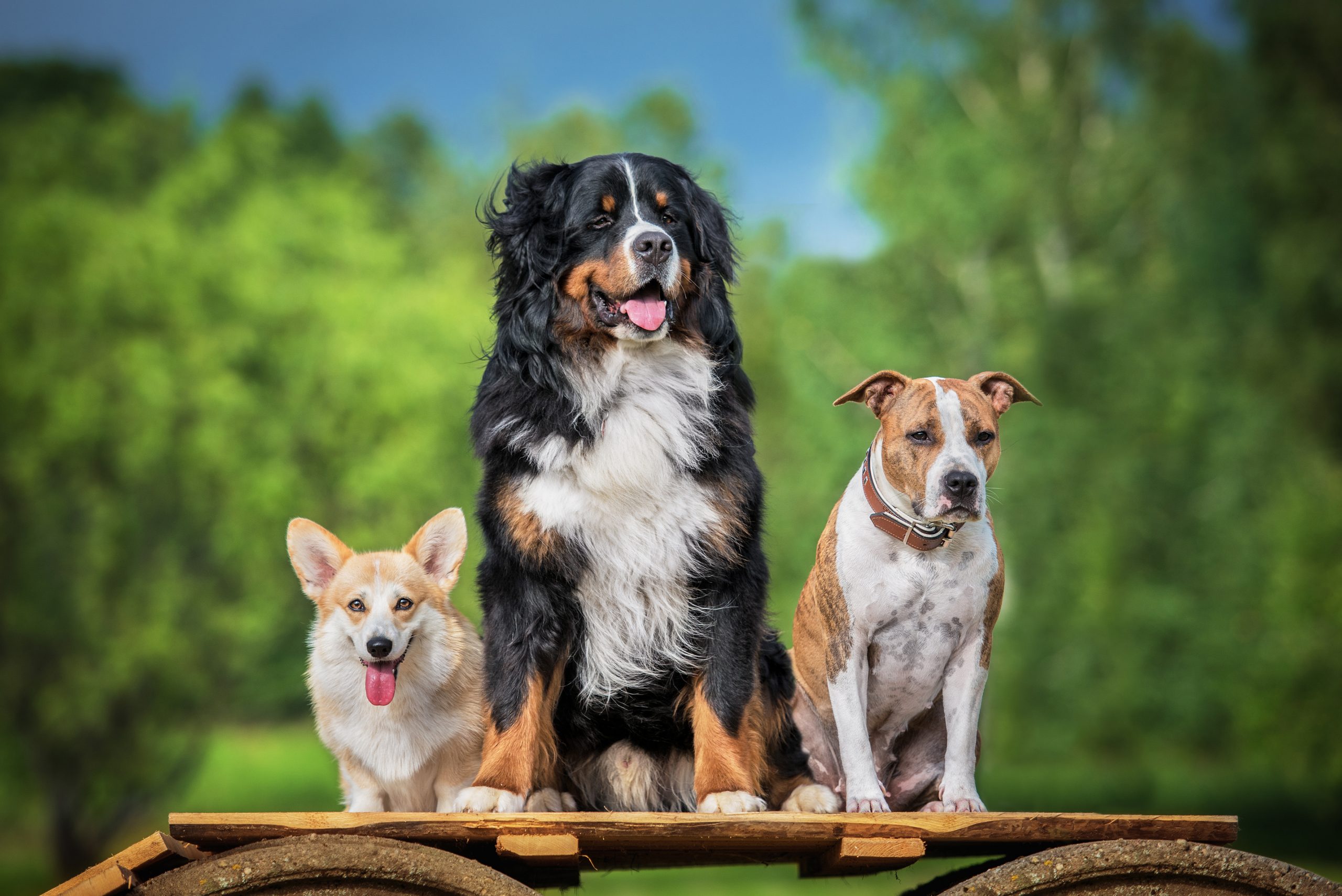 Shutterstock
Shutterstock
For dogs, being part of a pack is much more than simply having company—building deep connections, finding purpose, and experiencing true joy. Whether it’s playful antics, shared adventures, or quiet moments of companionship, life in a pack fulfills their innate need for togetherness and belonging. Sure, there may be the occasional tussle over the best spot on the couch or a stolen toy, but the camaraderie and love make it all worthwhile. In a pack, tails wag endlessly, reflecting their happiness and contentment.
 Toledo, United States.
Toledo, United States.